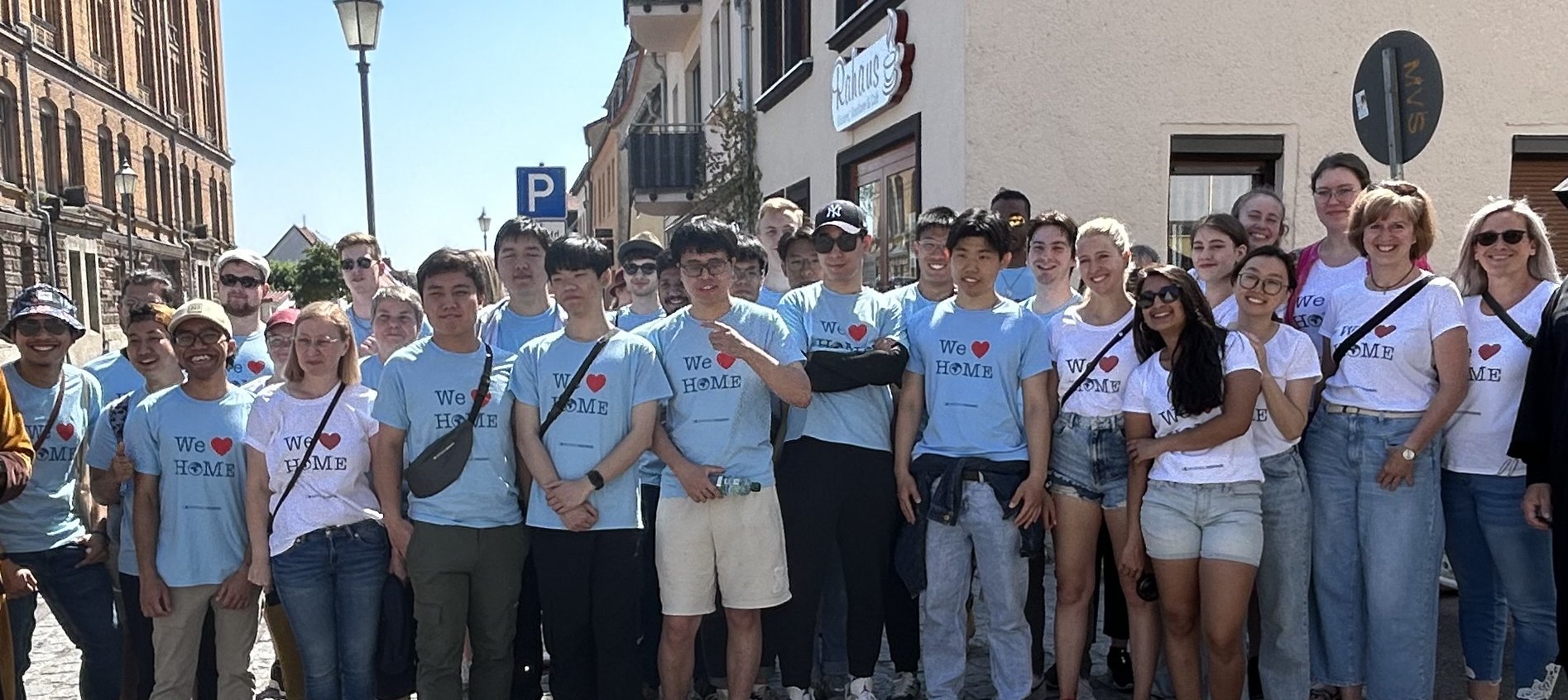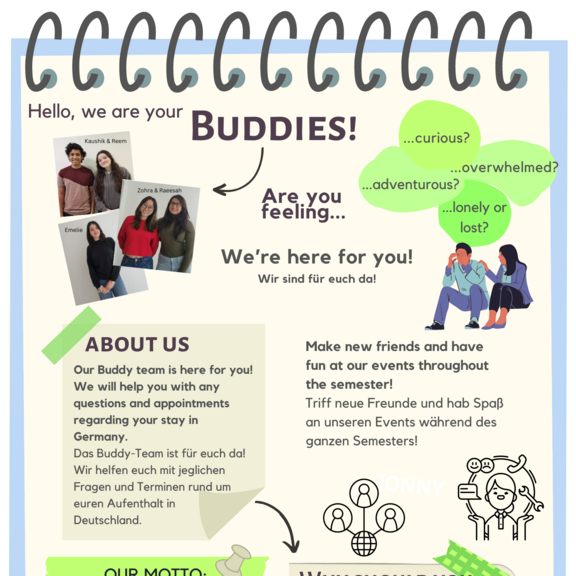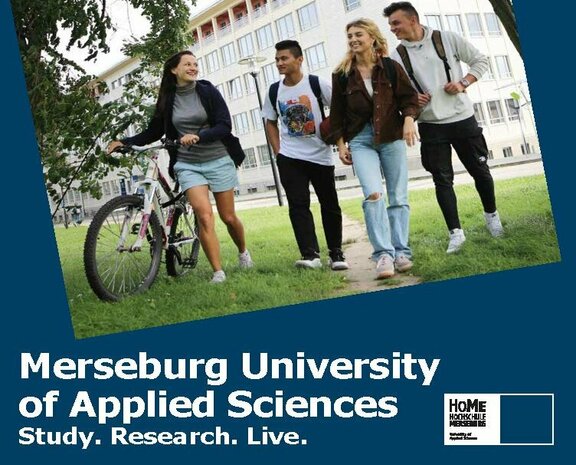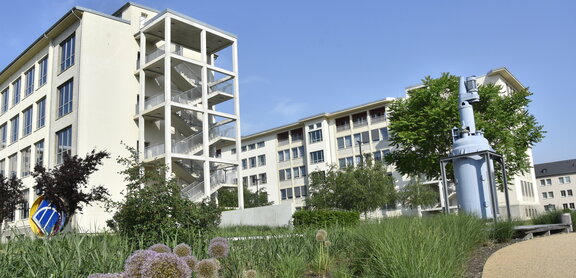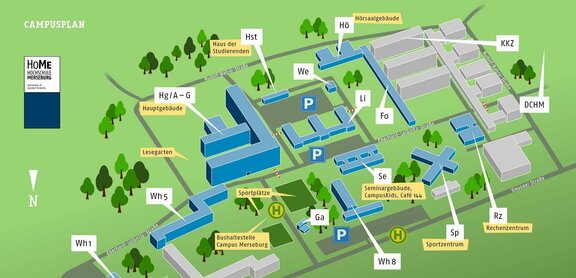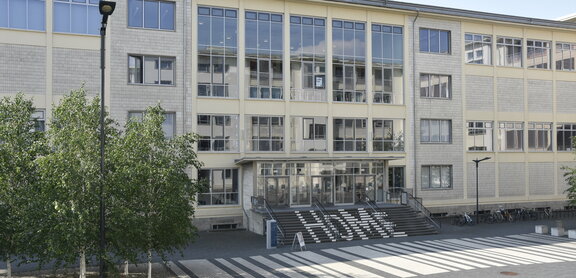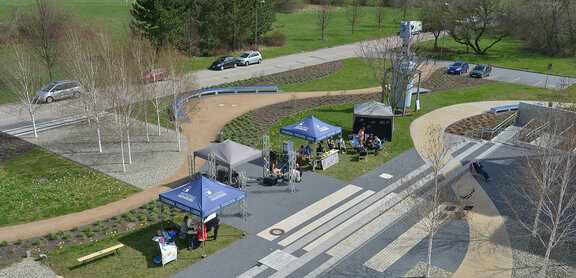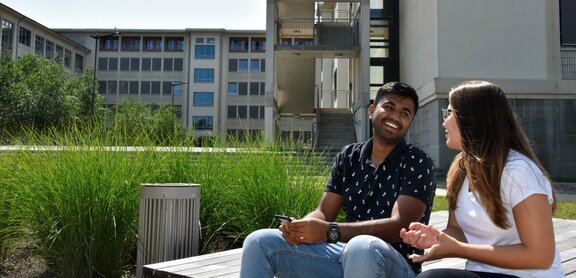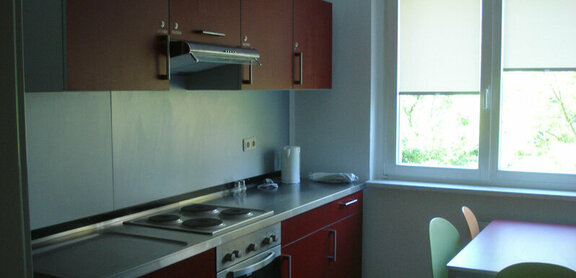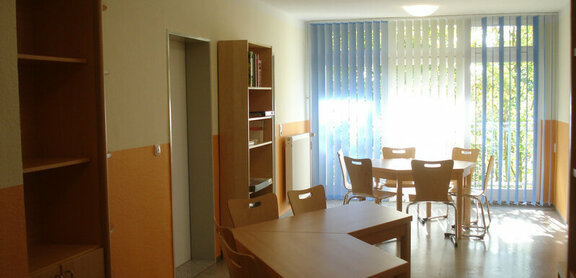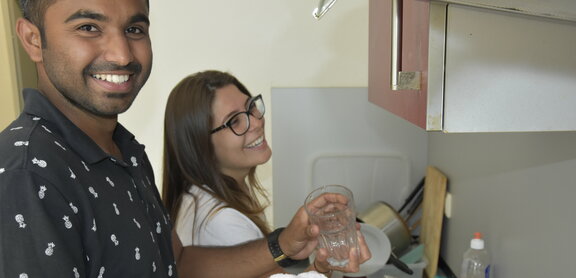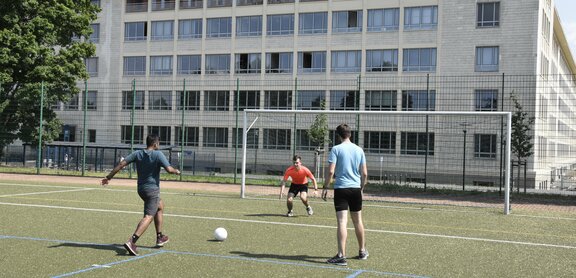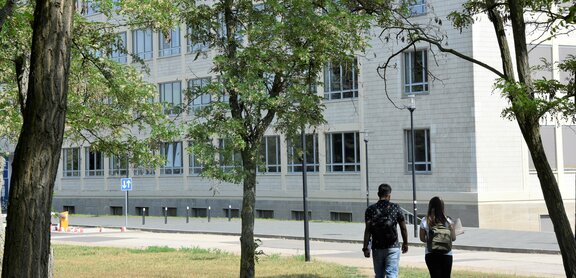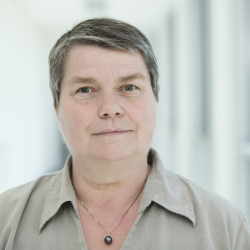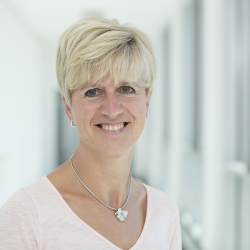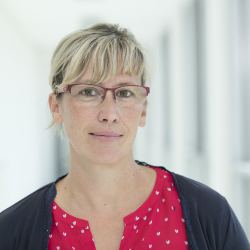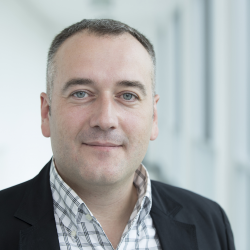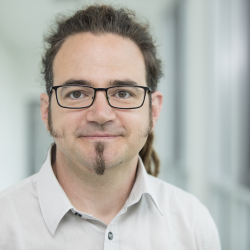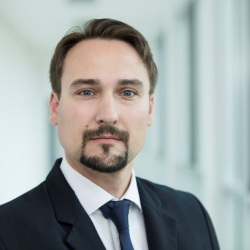Whether you are coming to Merseburg to participate in an exchange semester, to do a research project or a full degree, we cordially welcome you to Merseburg University of Applied Sciences (HoMe) and look forward to spending time together with you on the campus!
Information for exchange students
Information for Students and Staff of HoMe
Information on Bachelor/Master Degree Programs
Contact Information
International Office/Language Centre
Dr. Gabi Meister, Head of the International Office/Language Centre
phone: +49 (0)3461 462294
e-mail: international.office@hs-merseburg.de
Buddy Students
e-mail: buddys@hs-merseburg.de
How to apply
How to apply
- The student must be nominated by their home institution.
- Upon nomination the student will receive an invitation to apply by e-mail.
- The student must fill and submit follow documents to Cornelia Lorenz:
- Application Form,
- Registration Form for foreign guest students and Application for the uniCard (with photo),
- Online Learning Agreement (Please write the Departmental Coordinator at your faculty here at HoMe as responsible person in your Learning Agreement.)
- Transcript of records,
- Copy of the European Health Insurance Card (EHIC).
- Exchange students will receive their result of admission within 4 – 6 weeks after the deadline.
For the winter term: May 31
For the summer term: November 30
Courses for exchange students are carried out in English and we expect that you have sufficient fluency in English in order to cope with your courses from the start.
If you want to take part in courses in German language you are required to have a minimum of Level B1.
The Studentenwerk offers special guest rooms for international students located directly on the university campus (please check our Tips). The rent for a single room per month is approx. € 300, the deposit is € 340.
Please fill in the application form for the dormitory and send by e-mail to the International Office.
Departmental Coordinators
Dept. of Business Administration and Information Science
Prof. Dr. Thomas Rachfall
Dept. of Engineering and Natural Sciences
Prof. Dr. Dr. Goran Kaluderovic
Dept. of Social Work, Media, Culture
Prof. Dr. Frederik Poppe
- PDFInformation Sheet 2024/2025pdf | 688 KB
International Research Camp 2024
Merseburg University of Applied Sciences is running its first International Research Camp (IRC) from October 22 to 24, 2024. The IRC is designed to bring together scholars, researchers, PhD students and students from diverse academic backgrounds to engage in discussions, share insights, and foster collaborations in various research fields. One of the highlights of the IRC will be guest speaker sessions, where we invite distinguished scholars from partner universities to deliver lectures, seminars, or workshops.
Courses in English
For Engineers
Dept. of Engineering and Natural Sciences
For Engineers
Learning Outcomes & Competences:
- Students understand and apply essential contents of environmental engineering like water and wastewater technology, remediation of contaminated sites as well as suitable methods of air pollution control technology, noise reduction technology and waste/recycling technology;
- Students know the structure and the relevant technical components of e.g. sewage treatment plants, flue gas cleaning plants, noise protection plants as well as landfills, waste incineration and recycling plants;
- Students understand the influence of environmental technologies on the reduction of environmental emissions and are also able to evaluate this in a basic way;
- Students know the importance of environmental protection as a challenge for engineers and scientists;
- Students know the most relevant legal regulations and can apply them to the different plants/technologies;
- Students have an overview of microbiology and biotechnology and the diverse fields of application;
- Students are familiar with important groups of microorganisms and under microbial systems;
- Students gain insight into microbial material conversions and their possible applications.
Course Content:
- Basics of the construction and design of wastewater treatment plants as well as methods for sewage sludge treatment
- Contaminated site treatment including relevant pollutants for soil and groundwater, investigation procedures, treatment technologies of soil contamination and technical securing and decontamination measures
- Microbial growth and mechanisms of metabolism and energy conversion, electron transport under anaerobic conditions, special fermentations
- Structure and role of enzymes and enzyme kinetics
- Application examples, in particular for the development of environmentally friendly and sustainable technologies (environmental biotechnology / green engineering)
- Collection and transportation of waste and various processes for waste recovery and disposal (include mechanical waste treatment and subsequent recycling processes, biological treatment of organic residues, thermal treatment of residual waste and high-calorific waste fractions, and technologies for the safe landfilling of wastes
- Characterization of the condition of exhaust air streams and cleaning of exhaust air and flue gas stream (in particular, the methods and technologies for particle separation and removal of gaseous components from exhaust air as well as the main components of flue gas cleaning systems and the combined processes for exhaust air cleaning
- Characterization of noise, measurement and assessment of airborne noise, evaluation of noise sources, as well methods of airborne noise reduction, structure-borne noise reduction and structure-borne noise attenuation
Requirements: None
Type of Exam: Written examination (90 minutes), prerequisite for admission to the written examination is the regular completion of the practical laboratory class
Credits: 5
Teaching Hours per Week: 4
Lab Classes per Week: 1
Lecturers: Prof. Dr.-Ing. Hilke Würdemann & Prof. Dr.-Ing. Christoph Wünsch
Skills: Students will acquire basics concerning chemistry for engineers. After the course the students will:
- Have a basic understanding about atomic model, chemical bonds, chemical processes,
- Have an overview about inorganic, organic, physical and analytical chemistry,
- Understand basics about chemical structure formula.
Course Content:
Basics of structure of matter, periodic table of the elements, inorganic chemistry, organic chemistry, physical chemistry, analytical chemistry, techniques in a chemical laboratory
Requirements: None
Type of Exam: Written examination (120 min)
Credits: 5
Teaching Hours per Week: 4
Lecturer: Prof. Dr. Valentin Cepus
Skills:
- Primary introduction into the field of Inorganic-, Organic-, Physical- and Analytical Chemistry.
- Basic knowledge about atomic models, bonding force types, major classes of inorganic and organic substances in context to intra- and intermolecular interactions and their fundamental relation to the physical- and chemical properties of substances and materials.
- Repetition of basics in engineering and natural science related matter.
- Laboratory workshop to receive practical experience lab-orientated chemical work processes.
Course Content:
- Basic introduction into the fields of Chemistry, Materials and Chemical Analytics
- Repetition of fundamental physical and chemical terms and parameters in an engineering context
- Historical and recent concepts in atom theory and forces in condensed matter
- Structure and trends in the Periodic table of the Elements (PSE)
- Introduction into important inorganic and organic substance classes
- Introduction into intramolecular and intermolecular interactions and their fundamental relations to the physical- and chemical properties of substances and materials
- Chemical processes (solve, dilute, …) and chemical reactions and their thermodynamical description
- Law of mass action, chemical equilibrium, Stöchiometrics, Formular writing, balance of mass and energy, …
- Chemical Reactions standard reactions like Redoxreaction, Addition, Elemination, Substitution, Hydrolysis, ….
- Chemistry of Acids and Bases, pH-Value, Autoprotolysis of water, …
- Electrochemical processes and Corrosion of metals
- Fundamental Structures and Reactions in Organic Chemistry
- Qualitative and Quantitative Analysis for material characterization
Requirements: None
Type of Exam: Written examination (90 min)
Credits: 5
Teaching Hours per Week: 4
Lecturer: Prof. Dr. Bernhard Neumann
Learning Outcomes & Competences: The students will acquire a basic knowledge of the field of computing science.
Course Content:
Part 1: Computer Sciences
- Historical background of computer science
- Development of computers and basic concepts of digital data processing
- Computer categories
- Production of electronic components
- Hardware of computers
- Work processes of the computer
- Hardware components
- Bus systems, WorldWideWeb
- Cloud Computing
Part 2: Software Applications
- MS-Word
- MS-Excel
- MS-PowerPoint
- MS-Teams
- ERP-Systems (basic informations about SAP)
- MathLab
- Other programmes
Requirements: None
Type of Exam: Written examination and student presentation (practical part)
Credits: 5
Teaching Hours per Week: 4
Lecturer: Ulrich Borchert
Learning Outcomes & Competences:
- Students know basic physical quantities, the physical equations and have knowledge of the SI units of measurement.
- The basic electrical quantities are known and how they are derived.
- They are proficient in simplifying networks of sources and loads to form the basic circuit.
- Calculate resistive networks based on mesh current analysis, branch current analysis, superposition, two-pole theory
- Analysis of nonlinear resistive networks
- Know the terms and quantities of alternating current technology and how they are used in sinusoidal circuits
- Students will know the ac current behavior of linear devices.
- They are able to apply and implement mathematical methods and procedures in solving electrical engineering problems.
- The students have acquired the skills and theoretical knowledge to set up, carry out and evaluate pre-planned experiments.
Course Content:
- Moving charges
- Sources
- Current strength and current density
- Energy of a charge and potential
- Metallic conductors
- Ohm's law
- Temperature dependent resistors
- Direct current circuit
- Current and voltage in a simple DC circuit
- Kirchhoff's laws
- Series connection and parallel connection of resistors
- Resistor networks
- Active and passive dipoles
- Substitute current and voltage source
- Voltage divider and current divider
- Energy and power in the direct current circuit
- Power matching and efficiency
- Linear Networks
- Network topology, nodes, meshes, branches, complete tree
- Mesh current analysis
- Branch current analysis
- Superposition theorem
- Two-pole theory
- The alternating current circuit
- Sinusoidal time functions
- Arithmetic mean value, effective value, rectified value
- Ohmic resistance in the alternating current circuit
- Capacitance in the alternating current circuit
- Inductance in the alternating current circuit
- Voltage and current relationships in the time domain
- Pointer diagrams
Requirements: None
Type of Exam: Written exam (120 minutes). Permitted aids: own collection of formulas.
Credits: 5
Teaching Hours per Week: 4
Lecturer: Prof. Dr. Marco Franke
Learning Outcomes & Competences:
- Understand and apply basics of process engineering activities like to construct PIDs (piping and instrumentation diagrams), compiling lists as the equipment-, piping, drives- und instruments-lists, work out the installation plan of the equipment, basics of time and cost management.
- Remember, understand the most important equipment in process technology as heat exchanger, cooling equipment, dryers, crystallization equipment, distillation equipment, filtration, centrifugal separation, mixing equipment, pumps, compressors, vacuum generation, vessels, reactors.
- Basics in process safety, basics of the required utilities (steam, compressed air, electrical current, inert gases) and knowledge of disposed waste streams.
Course Content:
- Engineering projects
- Process engineering activities (PIDs)
- Realization of a plant (Project management)
- Equipment and systems
- Heat exchange equipment (Introduction, air cool -, shell- and tube-, plate- and frame heat exchangers, condensers)
- Evaporative cooling equipment (Introduction, design configurations, components and materials of construction)
- Evaporating and drying equipment (Introduction, evaporators, drying equipment, crystallization)
- Distillation equipment (Introduction, overview of distillation)
- Mass separation equipment (Introduction, absorption and adsorption equipment, solvent extraction, reverse osmosis)
- Mechanical separation equipment (Introduction, filtration equipment, sedimentation equipment, centrifugal separation equipment)
- Mixing equipment (Introduction, mixing equipment)
- Fluid flow engines (pumps, compressors, jet-pumps, vacuum generation)
- Further select equipment (Vessels, reactors, piping, measurement, valves)
- Process safety
- Utilities and waste streams
Requirements: None
Type of Exam: Written examination (90 minutes), prerequisite for admission to the written examination is the regular completion of the practical laboratory class
Credits: 5
Teaching Hours per Week: 4
Lecturer: Prof. Dr. nat. techn. Ulf Schubert
Learning Outcomes & Competences:
- Students gain a basic understanding of the nature of process engineering and an overview of the field.
- They will become familiar with the basic operations of mechanical and thermal process engineering in bird's eye view and can explain the underlying physical principles.
- On the basis of large-scale technical processes (example: ammonia synthesis, ethylene cracker), students learn about the application of individual basic operations and their links and can identify individual basic operations and their function in them.
- They will be able to read, interpret, and create basic and process flowsheets.
- Students will understand simple mole, mass and energy balances and are able to set them up, interpret them and calculate them (i.e., single-substance balances). They can critically evaluate the results by order of magnitude.
- The students learn composition measures of multicomponent systems, such as proportions or loading, and know how to use them. These are the basis of multi-component balances, which students can create and calculate. They are able to evaluate simple material and energetic networks and draw up and solve the corresponding balances.
- Students develop initial skills in analytical science problem solving by applying scientific methodology (thesis-experiment-proof). The students recognize and grasp increasingly complex procedural interrelationships.
- The students show a sense of responsibility for energetic and economic aspects. They develop engineering approaches with logical problem analysis. They work independently and responsibly.
Course Content:
Lecture and tutorial class: (In the tutorial class the topics of the lecture are deepened by solving example problems.)
- Introduction to the field of process engineering
- Basic elements of a process engineering plant
- Overview of basic process engineering operations
- Drawing representation of processes by flow diagrams with its elements (basic flow diagram, process flow diagram)
- Analysis of selected large-scale processes
- Simple mass, material and energy balances
- Composition measures of multi-component systems (proportion, loading, etc.)
- Material and energy balances of multi-component systems
- Material and energy balances of systems with several elements
- Balancing with the help of matrix calculations
Laboratory class:
- Students learn about typical laboratory work. The focus is on methods for the determination of substance data or concentrations always with reference to the course. In order to meet the different requirements of the students, a part of the laboratory course is offered as a selection.
- Evaluation of the practical work on the computer, especially the handling of MS Excel.
Requirements: None
Type of Exam: Written examination + successful completion of the laboratory class
Credits: 5
Teaching Hours per Week: 4
Lecturer: Prof. Dr.-Ing. Thomas Martin
Skills:
- Classification of the engineering materials concerning their structure and chemical composition
- Recognition and abstraction of the coherences between structure and properties of metals
- Knowledge and applicability of the coherences shown in the iron-carbon diagram
- Execution of basic test in the field of engineering material
- Handling with scientific literature during self-study
Course Content:
- Classification of engineering materials
- States of solid objects
- Ideal crystals
- Real crystals
- Classy state and state of super cooled melt
- Alloy formation
- Fe-C-alloys and the iron-carbon diagram
- Material testing
- Fundamental lab courses concerning materials engineering
Requirements: None
Type of Exam: Written examination (90 min)
Credits: 5
Teaching Hours per Week: 4
Lecturer: Prof. Dr. Beate Langer
Skills: After taking this class, students should be able to:
- Interpret logical and mathematical symbols
- Apply scalar products and cross products in geometry
- Solve linear systems of equations and find eigenvalues and eigenvectors of matrices
- Calculate limits of functions
- Be able to differentiate elementary functions
- Use derivatives in optimization problems
- Give Taylor series to given functions
- Use Riemann sums to find the area under a curve
- Recognize the connection between derivatives and integrals (Fundamental Theorem of Calculus)
- Apply simple methods of integration (integration by parts,substitution, partial fractions)
- Find extremal points of functions of several variables
Course Content:
- Logic and symbols
- Basics of linear algebra (e.g. vectors, matrices, scalar products, vector products)
- Systems of linear equations
- Eigenvalues, eigenvectors
- Limits and continuity
- Rules of differentiation
- Optimization using differentiation
- Riemannian sums
- Area under curves
- Fundamental Theorem of Calculus
- Methods of integration (integration by parts, substitution, partial fractions)
- Multidimensional functions
- Extremal points of functions of several variables
Requirements: None
Type of Exam: Written examination (120 min)
Credits: 5
Teaching Hours per Week: 4
Lecturer: Dr. Benjamin Wacker
Learning Outcomes & Competences:
Basic competence to understand and apply analytical strategies which enable to solve technical problems in the field of statics and strength theory
- Ability to state equilibrium conditions in order to calculate basic loads
- Knowledge of different support types in mechanics and how to calculate different support reaction forces
- Ability to calculate internal forces for simple structures, trusses and beams as a basis further strength analysis
- Understand basic relationships in strength theory and their application in the design of pipes and pressure vessels
Course Content:
Fundamentals of statics
- Force systems (force, moment, resultant)
- Systems and supports
- Free body diagram
- Equilibrium conditions
- Plane trusses
- Internal forces in beams
- Center of gravity
Fundamentals of strength theory
- Stress and strain
- Hooke's law, stress-strain diagram
- Stresses in thin-walled cylinders and spheres
Requirements: None
Type of Exam: Written examination
Credits: 5
Teaching Hours per Week: 4
Lecturer: Prof. Dr.-Ing. Jonas Fischer
Learning outcomes:
- The students possess basic understanding of physical phenomena and relationships.
- The students are able to describe physical problems in a mathematical expression.
Skills:
- Students know the basics about measurement of physical quantities and are able to estimate measurement uncertainty.
- Students are able to analyse simple mechanical systems and to solve problems by application of fundamental mechanical laws.
- Students are able to describe the different types of oscillating systems analytically and use these laws for the solution of problems.
- Students are familiar with the phenomena of wave propagation
- Students are familiar basic principles of hydrostatics and dynamics
- Students are familiar with thermodynamic state and energy variables and are able to apply these on simple model systems.
Course Content:
- Physical quantities, measurement and uncertainty analysis
- Kinematics and dynamics
- Mechanical oscillations and waves
- Fundamentals of hydrostatics and dynamics
- Fundamentals of thermodynamics
Requirements: None
Type of Exam: Written examination. Prerequisite for admission to the written examination is the regular completion of the practical laboratory course
Credits: 5
Teaching Hours per Week: 5 (Lecture, Exercise Class, Laboratory Class)
Lecturer: Prof. Dr. Klaus V. Jenderka
Skills:
- tbc
Course Content:
- tbc
Requirements: None
Type of Exams: Written exam
Credits: 5
Teaching Hours per Week: 4
Lecturer: Dr. Michael Schnitzlein
Learning outcomes & competences: Students will gain basic knowledge about the automation of technical processes. They will be able to describe the functionality and application of open and closed loop control, including PID (proportional-integral-derivative) control design. Students will be introduced to technical systems of process control, including actuators and sensors, programmable logic controllers (PLCs) and distributed control systems (DCS).
Content:
- Introduction to process control
- Sensors and signal processing
- Actuators in process control
- Open and closed loop control
- PID control design
- Programmable logic controllers (PLCs)
- Distributed control systems (PCS)
Teaching method/Requirements: The main course will be done by lecturing with some demonstration elements and self-study units. Exercises and tutorials will focus on calculation and design examples. Practical course will include work in process control laboratories in small groups. Participation in practical courses is obligatory.
Type of Exam: Written exam
Credits: 5
Teaching Hours per Week: 4
Lecturer: Prof. Dr.-Ing. Andreas Ortwein
Skills:
- Knowledge about interaction of bubbles and economic crises
- Implication to German and worldwide activities in the field of energy supply
- Analyzing of the current state concerning energy supply of a company
- Creating of strategies for fitting the energy supply to the needs (personal, operational, social)
- Basics of macroeconomics
- Basics about technologies of renewable energies
Course Content:
- Sustainability:
- modeling of macroeconomic states
- bubbles and economic crises
- strategies for energy supply
- Renewable energies:
- different kinds of renewable energies
- concept for sustainable energy supply and way to sustainable energy supply
- photovoltaic
- solar thermal systems
- energy of moving fluids – wind and water energies
- biomass
- heat pumps
- Grid stabilization:
- frequency, load and offer
- flexible user and producer, energy exchange market
- Strategies for local systems / countries:
- social frame condition for the promotion of investments into sustainable energies
- strategies for student home countries
Requirements: None
Type of Exam: Written examination (120 min)
Credits: 5
Teaching Hours per Week: 4
Lecturer: Prof. Dr. Dietmar Bendix
Skills:
- The students can handle the basics of thermodynamics.
- The students are able to balance energies and losses caused by energy transfer processes.
- The students are able to apply the laws of thermodynamics to simple processes of energy conversion/ heat transfer and study basic engineering via analytical solving of equations
- By creating simple spreadsheets using the start value - Goal Seek
- By using diagrams in combination with reference books.
Course Content:
- Modeling, systems, status and process variables
- Thermal equation of state , internal energy and enthalpy of the ideal
- Conservation of energy, heat, work
- Reversible and irreversible processes, entropy, exergy
- Transfer of heat by conduction, radiation and convection
- Complex transfer of heat, heat transition , thermal resistance
- Energy conversion , internal combustion and heat engines , steam - power - process, heat pumps with compressors
- Thermodynamics of heating and cooling / air-conditioning / humid air
Requirements: None
Type of Exam: Written examination (120 min)
Credits: 5
Teaching Hours per Week: 4
Lecturer: Prof. Dr. Dietmar Bendix
Learning Outcomes & Competences:
- The students are familiar with the basics of hydrostatics and hydrodynamics
- The students can apply practice-oriented methods for the solution of hydrodynamic problems of one-dimensional fluid flow of ideal and real fluids
- The experiences from the accompanying fluidic field work seminar enable the students to plan simple measurements at fluidic plants, to conduct those measurements by themselves, to interpret the findings and convert them into meaningful parameters
Course Content:
- Basics: fluids, gases, state variables, characteristics
- Hydrostatics: hydrostatic pressure, communicating containers, ground force/ wall force due to pressure load, hydrostatic buoyancy
- Hydrodynamics: laws of conservations and balance limits (one-dimensional fluid flow of ideal and real fluids), engineering applications in machines, devices and plants
- Dimensionless quantity: flow types, model experiments
- Field work Transport phenomena: flow measurement technology, determination of pressure loss, mass flow determination, calibration of pressure sensors, measurement of the flow velocity
Requirements: None
Type of Exam:
Credits: 5
Teaching Hours per Week: 4
Lecturer: Dr. Martin Ernst
Skills: Get to know relevant components and systems, their electrical behaviour and rules for their application
Course Content:
- Solar Cells and Modules
- Converter Systems
- Wind Power Systems
- Biomass Systems
- Fuel Cell Systems
- Electric Storage Systems
- Operation of Decentralized Fed Electric Grids
Requirements: Basics of Electrical Engineering, Electric Power Systems
Type of Exams: Oral exam
Credits: 2
Teaching Hours per Week: 2 SWS
Lecturer: Prof. Dr. Jörg Scheffler
Skills: VHDL and FPGA programming
Course Content: VHDL, design and simulation and programming
Requirements: Digital circuit design, understand programmable logic
Type of Exams: Documentation (app. 20 - 25 pages) and 20 min lecture
Credits: 5
Teaching Hours per Week: 4
Lecturer: Prof. Dr. Steffen Becker
Skills:
- Foundations of the physical chemistry of polymers and their characterization methods
- Overview of analytical techniques for polymers
- Learning to perform basic polymer analyses using different techniques
- Writing of scientific reports
The students should be able to apply and evaluate the basic principles of polymer characterization method.
Course Content (Lecture):
- Statistical treatment of analytical data
- Special chromatographic techniques for the investigation of polymers and polymer additives
- Principles and instrumental parameters in molecule spectroscopy (IR- and Raman spectroscopy)
- Thermal analytical methods for the characterization of chemical and physical properties of polymers
- Basic principles of analytical chemistry
- Chemical equation, Stoichiometry
Course Content (Lab Course):
- Extraction of additives and analysis of extracts and residual. monomers by GC/MS
- Elastomer characterization by TMA
- Qualitative analysis of polymers and copolymers by FTIR spectroscopy (MIR or NIR)
- Mn of polymers by vapour pressure osmometry or membrane osmometry
Requirements: None
Type of Exams: Written exam
Credits: 5
Teaching Hours per Week: 4
Lecturer: Prof. Dr. Valentin Cepus
Skills: The students will get enhanced knowledge in the field of modern digital mobile communications. After the course they are able to:
- Describe the tasks and background of the current digital mobile communication standards,
- Name the main network elements and their function and
- Denote the fundamental principles, algorithms and protocols of these standards.
Course Content:
- Introduction in mobile communication concepts
- GSM system for mobile communication
- 3rd generation system - UMTS
- Efficient packet data transfer with HSPA
- LTE as a 4th generation system
Requirements: Basics in communications systems, principles of computer networks
Type of Exams: Oral examination (30 minutes)
Credits: 2.5
Teaching Hours per Week: 2
Lecturer: Prof. Dr. Jens Mückenheim
Skills:
- Basic theoretical and advanced experimental methodic knowledge of piezoelectric transducers
- Development, setup and characterization of ultrasound transducers for typical applications
- Basic knowledge of measurement and simulation of mechanical and electrical properties of piezoelectric sensors and actuators
Course Content:
- Fundamentals of piezoelectricity, piezoelectric materials, design and modelling of (ultra-)sound transducers, simulation and measurement of (ultra-)sound fields, piezoelectric actuators
- Seminar: current sensor developments
- Practical course: construction of an ultrasound transducer incl. design, setup characterization and application test
Requirements: Physics I, Physics II (Sensor Technology recommended)
Type of Exams: Oral examination, written protocol/seminar paper
Credits: 5
Teaching Hours per Week: 4
Lecturer: Prof. Dr. Klaus-V. Jenderka
Skills:
- Acquiring perspectives for the work as a polymer scientist or polymer engineer
- Acquiring basic theoretical knowledge about processing of polymer materials
- Acquiring practical skills for processing of polymer materials
Course Content (Lecture):
- Basics of melt flow
- Extrusion
- Injection molding
- Spinning, foaming
- Elastomer processing
- Processing tires
- Blown film extrusion
- Recycling of polymer materials
Course Content (Polymer Processing Lab):
- Extrusion
- Injection molding
- Elastomer processing
- Blown film extrusion
Requirements: Basic knowledge about polymer materials
Type of Exams:
- Completion of lab course protocols
- Written exam
Credits: 5
Teaching Hours per Week: 4
Lecturer: Prof. Dr. M. Feldmann
Skills:
- Acquiring perspectives for the work as a polymer scientist or polymer engineer
- Acquiring a basic knowledge about testing polymer materials
- Practical skills for mechanical and physical testing of polymer materials
Course Content (Lecture):
- Elastic, visco-elastic and plastic deformation behaviour of polymer materials and phenomenological models, quasi-static test methods of polymer materials (tensile, compression, bending), hardness measurement and test methods, charpy impact test
Instrumented impact tests as methods for toughness characterisations of polymer materials, Fracture mechanic concepts for polymer materials
Course Content (Polymer Testing Lab):
- Content item: characterisation of elastic properties, tensile test, bend test, ball indentation test, Charpy impact test, drop weight test, tensile impact test
Requirements: Knowledge about polymer materials
Type of Exams:
- Completion of lab course protocols
- Written exam
Credits: 5
Teaching Hours per Week: 4
Lecturer: Prof. Dr. Beate Langer
For Business Students
Dept. of Business Administration and Information Sciences
For Business students
Skills: Students will:
- develop a basic understanding of current aspects or technologies from the computer-science fields covered by the seminar,
- gain basic competences in performing independent research on a given topic and in summarizing and classifying information, and
- improve their skills in presenting and discussing their findings and results.
Course Content:
- Summarizing and reporting on a chosen topic from the fields of computer networks and programming technology
- Reading and understanding provided and/or self-discovered material (e.g., technical articles, scientific papers)
- Work on a project that is related to the topic
- Discussions on the seminar topics
- Presentation skills
Requirements: Foundations in computer networks and reliable programming skills (e.g., advanced programming course). Students may choose between English or German for project work, material/input, presentation and documentation.
Type of Exams: Oral presentation with group discussion and software prototype
Credits: 5
Teaching Hours per Week: 4
Lecturer: Prof. Dr. Sven Karol
Skills: Based on practical and relevant case studies students know and understand:
- the theoretical foundations and fields of application of decision theory as well as basic communication techniques that occur in practice,
- current and future challenges in this context.
Students will acquire the skills to:
- deal critically with basic knowledge and to deepen this knowledge independently, and
- communicate purposefully with others and achieve results together.
Course Content:
- Theoretical foundations of decision theory and communication theory
- Basic elements of a decision model
- Decision under certainty and uncertainty
- Cognitive load in decision-making/ decisions under stress
- Target Costing
- Cost-utility analysis
- Preference matrix
- Analytical Hierarchy Process
- Decision Tress / Expected Value
- Roll Back Approach
- Basics of communication and information
- Body Language
- 4 facets of a message
- How to give and receive feedback
- Structure and Organization of information in companies
Requirements: None
Type of Exams: Oral presentation
Credits: 5
Teaching Hours per Week: 4
Lecturer: Dr. Dirk Förster-Trallo
Skills: Students will:
- gain an overview about the development of the globalization with related institutions, common market entry strategies of firms and marketing activities for doing business in other countries;
- learn to understand the drivers of offering products and services in other cultural areas to B2C customers;
- individually examine market entry strategies and doing business of case study companies;
- present their research results in the course for discussion; and thus
- learn to define own research topics and examine relevant issues in international business and management.
Course Content:
Globalization and international institutions
- Brief history of globalization
- From GATT to World Trade Organizations
- European Union, Nafta and ASEAN
Market selection and market entry strategies
- Export Management
- Foreign direct investments (FDI)
- Joint Ventures
National Cultures and cultural intelligence
Products and pricing in international markets
Communication in international markets
Sales policy in international markets
Student's presentations
Requirements: None
Type of Exams: Oral presentation and seminar thesis
Credits: 5
Teaching Hours per Week: 4
Lecturer: Prof. Dr. Doreen Pick
Skills:
- Basic insight into the concepts
- Tasks and methods of Financial Management
- Acquire the methodological skills: to realize financial goals, to make decision, to make processes and to control
- Gain an understanding of the function of Financial Management in organizations and
- Understand the relations with external market participants
- Planning- and controlling techniques and cost management
- Students know and understand:
- Foundations of International Financial Management
- The foreign exchange market, exchange rate determination and currency derivatives
- Foreign exchange exposure and management
- World financial markets and institutions
- Financial management of the multinational Firm
- Managing currency risk
- Financing international operations
- International management of working capital
Course Content:
- Foundations of International Financial Management
- International monetary system and balance of payment
- Corporate governance around the world
- Evolution and behavioral definition of multinational corporations
- Global competition
- Foreign Exchange Market, Exposure and Management
- Exchange Rate Determination
- Currency and Derivatives Markets
- Management of Transaction, Economic and Translation Exposure
- World Financial Markets and Institutions
- International Banking, Money- , Bond- and Equity Markets
- Interest Rate, Currency Swaps and Int. Portfolio Investment
- Financial Management of the Multinational Firm
- Foreign Direct Investment and Cross-Border Acquisitions
- International Capital Structure, Capital Budgeting, Multinational Cash Management
- International Trade Finance, Tax Environment and Transfer Pricing
- Managing Currency Risk
- Translation and Transaction Exposure
- Economic Exposure
- Financing International Operations
- International and Domestic Capital Markets
- International Financial Markets
- International Cost of Capital
- International Management of Working Capital
- International Trade Management
- Financial Management for the Global Enterprise
Requirements: None
Type of Exams: Written examination
Credits: 5
Teaching Hours per Week: 4
Lecturer: Sven Petersen, Michael Rode
Skills:
Students will be able to:
- illustrate the importance of the framework of the IASB for standard setting and applying IFRS,
- apply IFRS recognition and measurement rules to the covered accounting issues,
- analyze the consequences of applying various explicit and implicit accounting options with regard to the covered accounting issues, and
- judge which accounting option should be used to achieve certain earnings management objectives.
Course Content:
- IASB and Adoption of IFRS
- Framework and Presentation of Financial Statements
- Inventory
- Property, Plant and Equipment
- Intangible Assets
- Leasing
- Provisions
- Revenue Recognition
- Income Tax
Requirements: Thorough understanding of bookkeeping
Type of Exams: Written examination
Credits: 2.5
Teaching Hours per Week: 2 (winter term)
Lecturer: Prof. Dr. Ronny Gebhardt
Skills: The students will be able to:
- conduct a literature research,
- choose and use adequate research methods,
- present their findings on an international conference, and
- document their findings in a publishable form.
Course Content:
- Theoretical introduction into Mobility especially E-mobility
- Theoretical Introduction into "scientific writing" and "how to make a survey"
- Literature research
- Research for the Case Studies on e-mobility in Merseburg
- Gathering ideas for the improvement of mobility in Merseburg
- Group work
- Workshops, Excursions in and out of Germany
Requirements: None
Type of Exams: Seminar paper and presentation
Credits: 5
Teaching Hours per Week: Irregular; mostly group work/self-study
Lecturer: Prof. Dr. Dirk Sackmann, Abdulaziz Mardenli
Skills: Students will be able to:
- explain the scope, origins and significance of the management accounting function, and
- design an appropriate planning, control and information supply system.
Course Content:
- Review cost accounting
- Marginal accounting
- Bottleneck calculation + deviation analyses
- Anglo-american Costing Systems
- Income statement
- Planning, budgeting + forecasting
- KPIs
- Business consulting
Requirements: None
Type of Exams: Written examination
Credits: 2.5
Teaching Hours per Week: 2
Lecturer: Prof. Dr. Thomas Rachfall
Skills: Students will be able to:
- develop an understanding of the basic concepts of imperative programming languages and can apply them to create their own programs,
- write smaller programs on their own,
- structure and organize source code, and reuse existing programs from libraries, and
- use compilers and development environments effectively.
Note: German course! Students may choose between English or German for lecture slides and lab exercises.
Course Content:
- Programming paradigms and abstraction
- Control structures
- Data types
- Functions and recursion
- Memory management
- Basic input and output
- Compiler and development environments
- Labs in the C programming language
Requirements: Solid ability to use a computer, high affinity for IT-related topics, sound motivation and eagerness to learn programming
Type of Exams: Written or oral examination
Credits: 5
Teaching Hours per Week: 4
Lecturer: Sven Karol
Skills: Students will:
- achieve the ability to conduct data science projects,
- learn how to identify and solve underlying problems in typical data science tasks,
- get familiar with visual data science tool and use it to solve data science challenges, and
- present their results to other participants of the course which increases their presentation and social skills.
Course Content:
- Data science process
- Data preparation
- Feature engineering
- Model selection
- Hyperparameter tuning
- Result evaluation
- Data visualization
- Introduction into Visual Data Science Tool
Requirements: None
Type of Exams: Oral presentation and seminar thesis
Credits: 5
Teaching Hours per Week: 4
Lecturer: Prof. Dr. Christian Schmeißer
Skills:
- Model building
- Operations research
Course Content:
- Linear programming
- Graph theory
Requirements: Mathematics
Type of Exams: Written examination
Credits: 2
Teaching Hours per Week: 1
Lecturer: Prof. Dr. Dirk Sackmann
Skills:
- Knowledge about the field of activities and design options in Supply Chain Management
- Application methods in inventory positioning and lot sizing in the deterministic case and cases of demand uncertainty
- Application of tools and methods in designing supply networks
- Awareness of the requirements of global logistics
- Application of methods in risk management
- Certain methods in risk management in supply networks
- Finding the right pricing strategy for goods facing a changing customer demand in segmented markets
Course Content:
- Inventory management: enhanced static economic lot sizing, newsvendor model, inventory holding policies, dynamic economic lot sizing, risk pooling
- Network planning: locations, capacities, service level
- Supply contracts: make-to-stock and make-to-order decisions, information asymmetry
- Global logistics: risks and chances, risk management
- Smart pricing
Requirements: Basic logistics knowledge on lot sizing and order policies
Type of Exams: Written examination
Credits: 5
Teaching Hours per Week: 4
Lecturer: Prof. Dr. Dirk Sackmann
Dept. of Social Work, Media, Culture
Seminars and courses at the Department Social Work, Media, Culture will always take place during Summer Semester.
Courses
Skills / Course Content: What does energy have to do with social work? How do access to electricity, modes of heating or selection of transport modes display aspects of class, ethnicity or gender? What do heat poverty and living off the grid imply for participation in society, and how does our individual or state-wide energy consumption (including extensive media use) contribute to an overall system that might have little to do with energy or climate justice? Seminar participants will be reading and listening to contributions from social sciences to energy research, providing the basis for profound and insightful discussions on the topic.
Type of Exam: Presentation and essay
Requirements: Active participation
Credits: 2.5
Teaching Hours per Week: every Wednesday 1:30 – 3:00 p.m.
Lecturer: Dr. Katja Müller
Skills / Course Content: This course serves as a basic approach towards feminist concepts in different contexts. We will talk about the history of feminism as well as contemporary movements. Students are encouraged to explore the different meanings of feminism for their respective field (social work or culture and media education). All genders are encouraged to visit this course!
As an introduction please watch Chimamanda Ngozi Adichies Ted talk on Feminism: youtu.be/hg3umXU_qWc
Type of Exam: Presentation and essay
Requirements: Active participation
Credits: 2.5
Teaching Hours per Week: 2; every Tuesday 11:00 a.m. – 12:30 p.m. OR every Tuesday 1:30 p.m. – 3:00 p.m.
Lecturer: Esther Stahl
Skills / Course Content: Gender roles are being reproduced by our own behaviour and the behaviour we witness around us as well as in the media. Since online streaming services become ever more important in the socialisation of teenagers and young adults, their role in conveying gender roles or gender fluidity is relevant.
In this seminar we will learn how to dissect different aspects of gender roles by watching different series on the streaming service Netflix.
Type of Exam: Presentation and essay
Requirements: Active participation
Credits: 2.5
Teaching Hours per Week: 2; every Wednesday 9:15 a.m. – 10:45 a.m. OR every Wednesday 11:00 a.m. – 12:30 p.m.
Lecturer: Esther Stahl
Skills / Course Content: In the course, the aspect of "participation in cultural life" in the context of disabilities will be addressed. Barriers are to be identified both in the field of reception of art and in its production. In addition, the museum component will be addressed (presentation and inclusion-oriented art mediation). The art historical terms "Art Brut" and "Outsider Art" will be critically reflected.
The course combines theory (e.g. assistance concepts, empowerment, cultural participation) with practice: In the field of artistic practice, genres will be tested that are particularly suitable for heterogeneous groups.
Type of Exam: Presentation and essay
Requirements: Active participation
Credits: 2.5
Teaching Hours per Week: 2; every Thursday 1:30 – 4:45 p.m.
Lecturer: Prof. Dr. Frederik Poppe
Skills / Course Content: Esperanto, a constructed international auxiliary language created in the late 19th century by L. L. Zamenhof, has been associated with the peace movement. The proponents of Esperanto believe that a common language could contribute to better international understanding and collaboration. By removing language barriers, it becomes easier for people from different countries and cultures to connect and share ideas. Esperanto emerged during a time of great political tensions and conflicts in Europe. Zamenhof, the creator of Esperanto, hoped that a shared language could help bridge divides and promote peace in a world torn by nationalism and ethnic conflicts.
While Esperanto has not become a global language, and its impact on the peace movement is debated, its ideals align with the vision of fostering international understanding and cooperation to contribute to a more peaceful world. Nationalist tendencies have regained strength in today's Europe. The seminar will discuss the relevance of language in the context of peace policy today.
Students will gain basic insights into the artificial language Esperanto and learn basic vocabulary.
Type of Exam: Presentation and essay
Requirements: Active participation
Credits: 2.5
Teaching Hours per Week: 2; every Wednesday 11:00 a.m. – 12:30 p.m.
Lecturer: Prof. Dr. Frederik Poppe
Skills / Course Content: “How can I help you to get rid of me?” “How could you worsen your situation?” Although rather unusual at a first glance, these questions are an integral part of the standard repertoire of questions used when applying methods, theories, and mindsets of systemic social work. It is a solution and resource-oriented approach, which is of great importance to social work. It is based on a constructivist view of the world as well an understanding that people have “eigensinn” (ownership of their own perspectives), i.e. they are autonomous. In addition to unusual questions, many other tools of systemic social work will be used in this seminar. By taking part in exercises in small groups, participants will get the opportunity to become familiar with the systemic social work approach and explore its effectiveness and benefits. Throughout the four-day course, active participation is the prerequisite for obtaining credits.
Type of Exam: Presentation and essay
Requirements: Active participation
Credits: 2.5
Block seminar: 24th-25th May and 31st May-1st June 2024
Lecturer: Prof. Dr. Johannes Herwig-Lempp
Skills / Course Content: In this course, we will take a scholarly look at contemporary video games, focusing on the gaming industry, possible applications in media pedagogy, and ideologies of popular games. For this purpose, we will read English-language academic texts and discuss theoretical approaches.
Type of Exam: Presentation and essay
Requirements: Active participation
Credits: 2.5
Teaching hours per week: every Tuesday 3:15 – 4:45 p.m.
Lecturer: Prof. Dr. Stephan Meise
Language Courses
Please inform yourself about current offers of other languages courses (e.g. russian, french etc) at the International Office.
Language courses
Skills:
- Being able to communicate successfully in an English-speaking environment
- Being able to keep up a conversation on a fairly wide range of general, job-related and familiar subject-specific topics
- Using standard structures of written and oral communication appropriately
- Understanding relevant written and spoken information on common business topics
Course Content:
- Social English: e. g. introductions and greetings; presenting yourself in a professional way
- Getting to know the company; describing job activities; making arrangements; writing e-mails
- Brands/Advertising
- Money/Finance
- Business Travel
- Globalization
- Basic structures (verb tenses, conditional clauses, passive)
Requirements: General English skills at level B2 or equivalent
Type of Exams: Written examination
Credits: 5
Teaching Hours per Week: 6
Lecturer: t.b.a.
Skills:
- You will develop your abilities in reading, writing, listening and speaking in an academic context
- You will learn about academic culture and study methods in an English-speaking environment
- You will focus on grammar and vocabulary that is of particular importance in academic written and spoken communication
- You will acquire skills enabling you to participate in lectures, tutorials, workshops and conferences
Course Content: The course includes a variety of topics, e.g.
- Academic Orientation
- Choices and Implications
- Risks and Hazards
- Language and Communication
- Difference and Diversity
- Work and Equality
Requirements: General English skills at Upper-Intermediate Level
Type of Exams: 4 tests
Credits: 5
Teaching Hours per Week: 4
Lecturer: Deborah Le Guillou / Uwe Schiffke / Gesine Kögler
Skills:
- Reading comprehension of German texts, correspondence, comments and interviews at elementary level to basic/general level about specific topics
- Listening comprehension at elementary level
- Speaking skills
- Presenting in German
Course Content:
- Introductions
- Meeting people
- My profession/occupation
- Small talk
- Summarizing
- Reading techniques
- Presentations, grammar and vocabulary exercises for students, dialogues and video units
- Listening
Requirements: None
Type of Exams: Written examination, oral examination
Credits: 5
Teaching Hours per Week: 4
Lecturer: Oda Brauer
Skills:
- Reading comprehension of German texts, presentations, lectures, comments und interviews at intermediate to upper-intermediate levels of interdisciplinary and subject related topics
- Conversation in a professional setting; explaining and understanding different phenomena
- Presentations and negotiations in German
Course Content:
- Methods for presenting scientific investigations and research in: hypothesis, providing a structure, methods for quoting, summarizing
- Methods for reading texts at upper-intermediate level, presentations, grammar and vocabulary exercises for students, dialogues, video units and listening exercises
Requirements: Basic knowledge of German at level B1
Type of Exams: Written examination, oral examination
Credits: 5
Teaching Hours per Week: 4
Lecturer: Svetlana Telepneva
Skills:
- Teaching of intercultural competence and applied geography knowledge
- Conversation in a professional setting: explaining and understanding cultural phenomena, intercultural differences and gained awareness/cognition
- Presentations and negotiations in German
- Summarizing an issue
- Discussing
Course Content:
Methods for presenting and interchange sociologic and sociolinguistic knowledge/awareness ‘Study Visit in Germany’: for instance the personal intercultural experience of
- Stereotypes
- Expectations before arriving
- Comparisons/contrasts, self-perception vs. public perception, opinion about foreigners
- Experience exchange
- Applied geography, politics, economy, culture, education system, music, language etc.
Getting to know German traditions/rules/customs: guideline to the business world, studying, everyday life, dealing with public authorities and private persons.
Requirements: German at level B1, English at level B1
Type of Exams: Written report in German or English / 6 pages without pictures
Credits: 2.5
Teaching Hours per Week: 2
Lecturer: Svetlana Telepneva / Uwe Schiffke
Skills:
- Reading comprehension of texts, correspondence, comments and interviews at elementary to basic/general and subject-specific topics
- Listening comprehension at elementary basic level
- Speaking skills
- Presenting in Spanish
Course Content:
- Introductions
- Meeting people
- My profession/occupation
- Small talk
- Summarizing
- Reading techniques
- Presentations, grammar and vocabulary exercises for students, dialogues and video units
- Listening
Requirements: None
Type of Exams: Written examination, oral examination
Credits: 2
Teaching Hours per Week: 2
Lecturer: Oda Brauer
Skills:
- Reading comprehension of foreign-language texts, presentations, lectures, comments und interviews at intermediate to upper-intermediate levels of interdisciplinary and subject related topics
- Conversation in a professional setting; explaining and understanding technical phenomena
- Presentations and negotiations in the foreign language
Course Content: Methods for presenting scientific investigations and research in: hypothesis, providing a structure, methods for quoting, summarizing. Methods for reading technical texts at upper-intermediate level presentations, grammar and vocabulary exercises for students, dialogues, video units and listening exercises.
Requirements: Basic knowledge of German at level B1
Type of Exams: Written or oral examination
Credits: 5 (may vary depending on which course of study)
Teaching Hours per Week: 4
Lecturer: Svetlana Telepneva
Skills:
- Being able to communicate successfully in an English-speaking environment
- Being able to discuss a wide range of general, job-related and familiar subject-specific topics
- Being able to explain technical phenomena and specific processes
- Understanding relevant written and spoken information (instructions, reports, interviews, presentations, lectures)
Course Content:
- Technical Functions and Applications
- Describing Technical Processes
- Engineering Design
- Energy Engineering
- Automation/Robotics
- New Developments in Science & Technology
- Explaining Tests & Experiments
- Recycling/Waste Management
- Complex Linguistic Structures
- Applying for a job/internship
Requirements: English skills at Common European Framework (CEF) Level B2 (or equivalent)
Type of Exams: Written and oral examination
Credits: 5
Teaching Hours per Week: 4
Lecturer: Uwe Schiffke
Accommodation
During your scheduled study period accommodation will be available in the form of guest rooms, located directly on the university campus. The rooms are fully furnished. Mattress, quilt, pillow and bed linen are provided. In the shared kitchen all the necessary household items (such as cooking utensils, pots and pans, cutlery and electric kettle) are available to all. The bathroom is a communal bathroom (two bathrooms for five to six people). The common area is equipped with tables, chairs and a TV. All rooms have access to the internet.
Costs
- Rate per month: approx. EUR 300
- Deposit: EUR 340
Please pay your first month rent and the deposit upon arrival in cash. You can not pay by credit card.
How to apply
- Complete the application form for the dormitory and send by e-mail to the International Office at HoMe.
- Submit the online application for admission to the Studentenwerk.
Apply for housing
- PDFApplication Form for the Dormitorypdf | 34 KB
- Accommodation portal of the Studentenwerk Halle
- DOCXInstructions for the Accommodation portaldocx | 704 KB
Buddy Service
Apart from helping you solve any problems you may have, our student buddies will organise trips and social events for you. These social 'get-togethers' are intended to help you get to know other people very quickly. Our buddies will regularly inform you by our Facebook group International Students Merseburg or on Instagram important events.
Pick-up service: Please let us know, when and where you will arrive. We will try to arrange a pick-up service for you at Merseburg station. Try to avoid arriving on weekends or on a public holiday.
FAQ und Tipps
FAQ
Students coming from Europe (normally) do not need a visa for a study stay in Germany.
Students from non-EU countries do need a visa for the purpose of studying (student visa). We advise you to contact the German Embassy or Consulate.
Information on visa regulations can be found here.
Yes. Students wishing to study in Germany must have health insurance coverage.
Students from Europe can use their European Health Insurance Card (EHIC) as a proof of health insurance cover. Students from non-EU countries need a statutory health insurance for their visa but also for the matriculation at Merseburg University of Applied Sciences.
At Merseburg University of Applied Sciences you do not pay any tuition fees!
The Studentenwerk charges a semester fee of circa EUR 260 per semester. It supports student meals, students cultural projects, social services and renovation projects. A semester ticket is also included. More information can be found here.
A single room on the campus costs EUR 300 per month + one-time charge of EUR 340 deposit.
The health insurance costs circa EUR 110 per month.
Here you will find our cooperation partners.
Local Residents' Registration Office
Within the first week after your arrival, you need to register at the local authorities (even for a temporary stay). The proof of residence registration is needed to open a bank account. You will need your passport and visa (if necessary) and your rental contract.
Each student receives EUR 75 from the city of Merseburg if they agree that their permanent address is in Merseburg. So, apply straight away for this bonus when you go to the local residents' registration office.
Foreigners' Registration Office
Students from non-EU countries planning to stay in Merseburg for over three months, must register at the foreigners' registration office. You will need your passport and visa (if necessary), two biometric passport photos, the proof of residence registration, your matriculation certificate and proof of health insurance.
If you have any trouble filling in the registration forms, our buddies will help you and, if necessary, take you along to all the offices.
Other Information
Recommendations for Outdoorworks events, such as:
- Excursions,
- Hikes,
- Swimming
This guideline contains information for international students regarding health, safety, occupational accidents and emergencies.
Do you have problems with your studies, study programme or internship here in Merseburg that you cannot solve on your own? Are you dissatisfied with the work of the International Office and would like to share your criticism with us? Together we will look for solutions to your problem. Please feel free to get in touch with us, by e-mail or meet us in the International Office (Hg/G/1/23).
Merseburg University of Applied Sciences has taken a firm stance and offers support to counteract discrimation, sexism, racism, homophobia, all forms of harassment and stalking. If you are affected by discrimination, you can contact the Complaints Office of Merseburg University of Applied Sciences in confidence.
Movies about HoMe
Datenschutzhinweis
Wenn Sie unsere YouTube-Videos abspielen, werden Informationen über Ihre Nutzung von YouTube an den Betreiber in die USA übertragen und unter Umständen gespeichert.
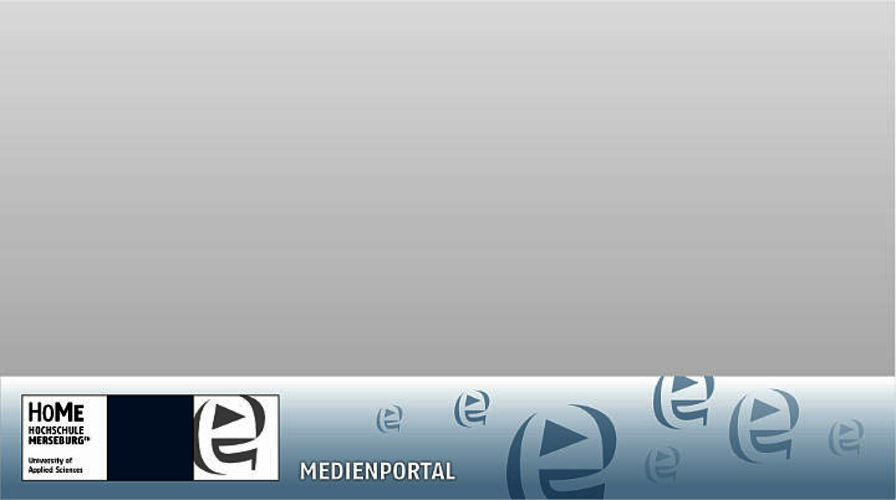
Welcome HoMe!
Datenschutzhinweis
Wenn Sie unsere YouTube-Videos abspielen, werden Informationen über Ihre Nutzung von YouTube an den Betreiber in die USA übertragen und unter Umständen gespeichert.
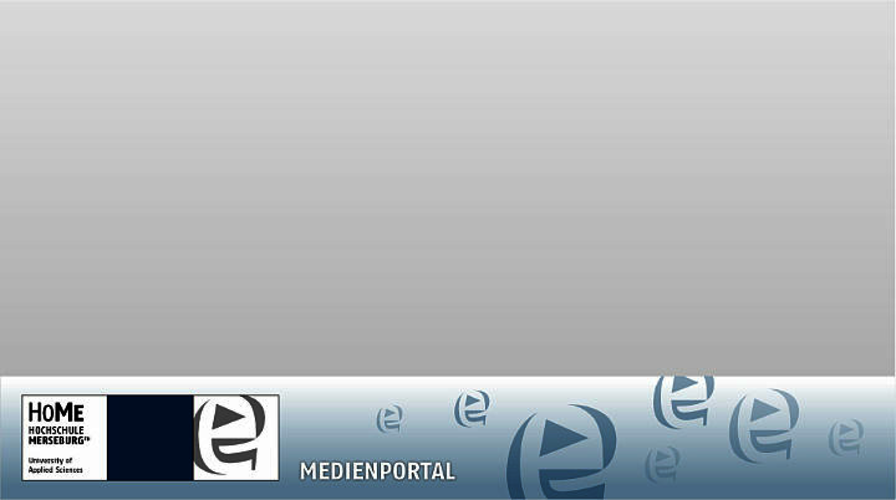
What students say about Hochschule Merseburg.
Datenschutzhinweis
Wenn Sie unsere YouTube-Videos abspielen, werden Informationen über Ihre Nutzung von YouTube an den Betreiber in die USA übertragen und unter Umständen gespeichert.
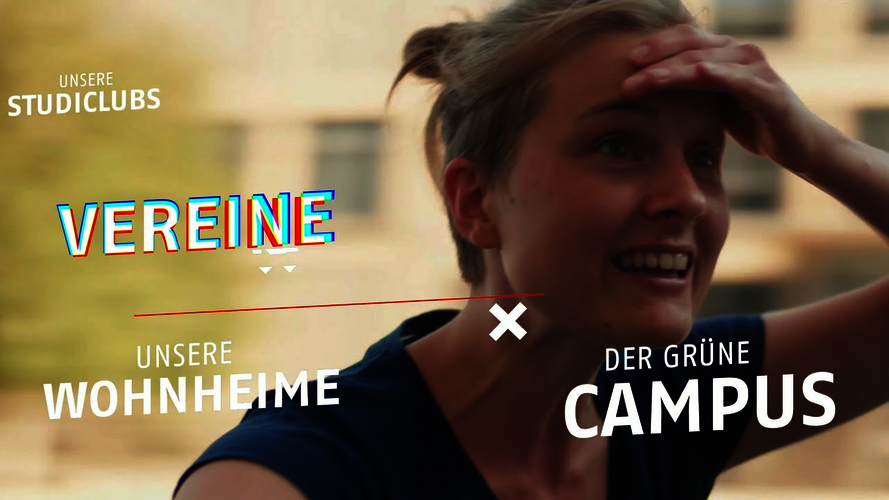
Life on the campus
Experiences of incoming students
Curious now?
On the following pages, in addition to information on our three departments, students at our university also introduce themselves to tell you about their HoMe.
- Studying in Merseburg
- Department of Engineering and Natural Sciences
- Department of Social Work, Media, Culture
- Department of Business Administration and Information Sciences
- Research and Doctoral Studies at HoMe
- Application Process and Language Skills
- Campus Life
- Living in Merseburg
- Discover Merseburg
- Contact Information
